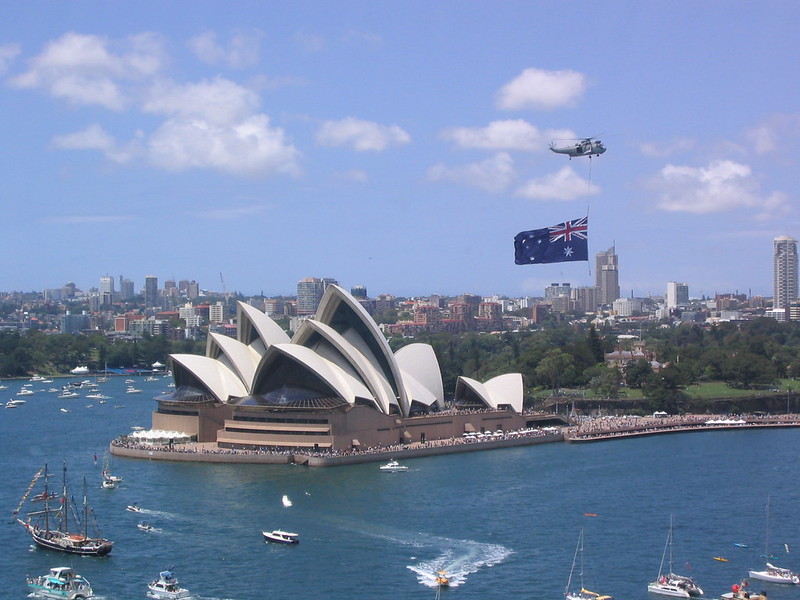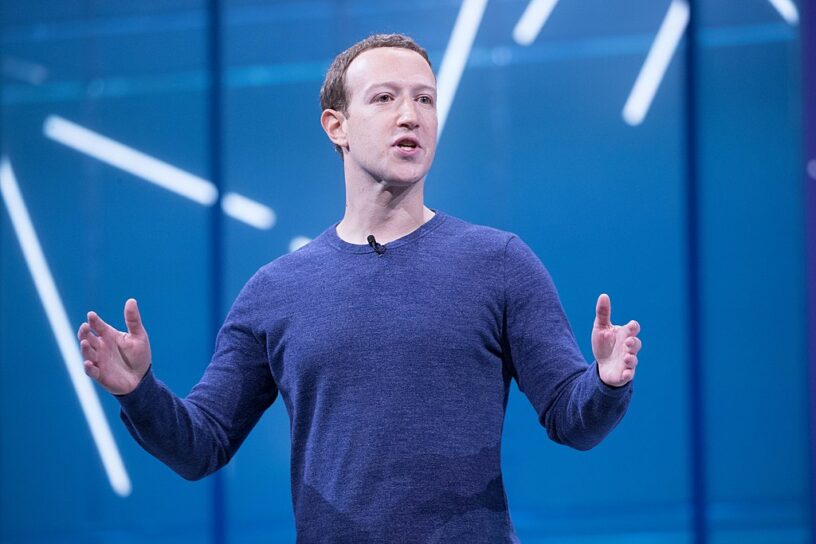That’s right, it’s once again time to discuss the controversies surrounding Facebook. We’ve already covered Janurary’s WhatsApp terms and conditions debacle but since then, the tech giant has been involved in multiple other spats with companies, governments, and even the Amazon.
Facebook versus Apple

Image Credit: Apple and Pear Australia Ltd via Flickr
In a recent but long-awaited update to iOS, Apple is adding a feature called App Tracking Transparency to iOS, which will “require apps to get the user’s permission before tracking their data across apps or websites owned by other companies”. Note the subtlety of the policy: Apple is not banning user tracking, merely banning user tracking without permission. This feature was supposed to launch in September 2020, but was delayed to 2021 in order to give businesses more time to transition.
This has also given businesses more time to organize opposition to the concept of asking users for permission before creating creating a dossier on their activities. Naturally, Facebook is one such business, but they routinely claim they are motivated by the need to help small companies find customers.
Both Apple and Facebook, which just to be clear are corporations worth hundreds of billions of dollars, have released propaganda supporting their moral stances in this struggle. Apple has a document aimed at consumers titled A Day in the Life of Your Data. Facebook has created a website proclaiming that “Small businesses deserve to be heard”. Facebook also took out full-page ads in The New York Times, The Wall Street Journal and The Financial Times: an ironic move for a web-advertising giant arguing that user tracking is necessary.
Facebook, of course, neglected to mention the billions they earn from all the tracking. Apple, for its part, did not mention the numerous negative effects of their iron grip on iOS App Store – the same mechanism they are using to protect user privacy.
Facebook versus Australia

Image credit: Phil Whitehouse via Flickr
Paying for Links
Earlier this year, Australia was considering enacting a law that would require Google and Facebook to pay Australian news outlets for links. If the outlets and tech giants failed to reach a deal, a “neutral” third-party arbitrator would decide whose offer was the better one.
Tim Berners-Lee, one of the inventors of the World Wide Web, has claimed that such legislation, if replicated elsewhere, would make “the web unworkable around the world”. In a statement to an Australian Senate committee, he said:
I am concerned that that Code risks breaching a fundamental principle of the web by requiring payment for linking between certain content online.
On the web, the sharing of content rests on the ability of users to do two things: to create content, typically text but also other media; and to make links in that content to other parts of the web. This is consistent with human discourse in general, in which there is a right, and often a duty, to make references. An academic paper is required to list references to other papers which are related. A journalist is normally required to refer to their sources. The discourse of bloggers involves links from one blog to another. The value of the blog is both in the text and in the carefully chosen links.
Later in his statement, he clarified that:
I support the right of publishers and content creators to be properly rewarded for their work. This is without doubt an issue that needs addressing, both in Australia and around the world. However, I firmly believe that constraints on the use of hypertext links are not the correct way to achieve this goal.
In Facebook’s statement to the committee, they claimed that:
It is not sustainable nor rational to arbitrarily target and discriminate against two private, US companies, to make them legally and solely responsible for supporting a public good and solving the long-standing challenges of the Australian media industry. The decision to limit the legislation to two US companies is also discriminatory and will inevitably give an unfair advantage to Facebook’s competitors in the technology sector, including rivals from countries that propagate different and undesirable visions for the Internet.
Google’s statement to the committee points out that:
Code that designates Search for the purpose of paying for links and snippets would set an untenable precedent for our businesses and the digital economy. It undermines the foundation on which not just search engines but the internet work.
Mel Silva, Managing Director of Google Australia and New Zealand, further claimed in a Senate testimony that Google would have “no real choice but to stop making Google Search available in Australia.” In an email to Ars Technica, Google clarified that they were willing to pay publishers for a spot in a “News Showcase” separate from search results: they objected specifically to paying for links and news snippets.
The Guardian, an Australian digital news site, had a statement to the committee that claimed:
We support many aspects of the bill, and believe that the Australian government is leading an important effort to rebalance power relations between online platforms and news media publishers.
Microsoft, interestingly, supported the Australian legislation on their blog, suggesting that:
The United States should not object to a creative Australian proposal that strengthens democracy by requiring tech companies to support a free press. It should copy it instead.
In the same blog post, Microsoft openly claimed that their Bing search engine had below 5% market share in Australia, and that they would be “comfortable” serving the Australian market under the new laws if Google decided to leave.
Google never ended up leaving Australia, however. They negotiated a revenue-sharing agreement with Australia’s News Corp, which owns numerous news outlets across the English-speaking world, avoiding any massive public confrontations. Facebook decided to take a more drastic response.
Restricting the News
On February 18, Facebook blocked all news content from Facebook in Australia. Australian publishers could not share or post content on Facebook Pages, news links (Australian or otherwise) couldn’t be viewed or shared by Australian Facebook users, and even users outside Australia could not view or share Australian news content on Facebook.
In Facebook’s statement on their news restriction, they claim that:
The proposed law fundamentally misunderstands the relationship between our platform and publishers who use it to share news content.
Their basic point being that Facebook already benefits publishers more than publishers benefit Facebook.
For several hours, some non-news Facebook Pages were blocked as well, including the official pages for ACT Health, ACT government, the Bureau of Meteorology, Canberra Metro and Queensland Health. Pages for Foodbank Australia, Women’s Legal Shelter, and the Australia Council of Trade Unions were also affected.
Australian Prime Minister Scott Morrison criticized “Facebook’s actions to unfriend Australia” in a Facebook post (ironically enough), stating that:
These actions will only confirm the concerns that an increasing number of countries are expressing about the behaviour of Big Tech companies who think they are bigger than governments and that the rules should not apply to them. They may be changing the world, but that doesn’t mean they run it.
Back to the Negotiating Table
On February 22, Australian Treasurer Josh Frydenberg announced that the government would offer several amendments to the bill. One of the aims of the amendments is to establish that:
A decision to designate a platform under the Code must take into account whether a digital platform has made a significant contribution to the sustainability of the Australian news industry through reaching commercial agreements with news media businesses;
In other words, if Google and Facebook reach commercial agreements with Australian businesses not involving the government, they can avoid explicitly paying for links. Google’s deal with News Corp is one deal that will be taken into account. Facebook also agreed to a deal with Australian news firm Seven West Media.
Facebook versus Amazon (the rainforest)

Image credit: lubasi via Wikimedia Commons
Finally, just this week the BBC discovered that protected parts of the Amazon rainforest are being illegally sold on Facebook Marketplace. Some of the lands on sale are reserved for indigenous peoples, including some groups that have had no contact with the outside world. Facebook claims that deducing which sales on its Marketplace are illegal would be too difficult, even though some of the listings even include GPS coordinates. Facebook could also halt all Marketplace land sales in the Amazon, but has not bothered.
Sources
- Apple: A Day in the Life of Your Data
- Facebook: Small businesses deserve to be heard
- New York Times: Facebook Takes the Gloves Off in Feud With Apple
- Ars Technica: Everything that happened in Apple and Facebook’s privacy feud today
- Inc.: Facebook Took Out a Full-Page Ad
- Macrotrends
- Parliament of Australia, Submissions received by the Committee
- Ars Technica: We’ll shut down Australian search before we pay
- News Corp: News Corp and Google Agree to Global Partnership
- Microsoft: Microsoft’s Endorsement of Australia’s Proposal
- Ars Technica: Facebook news ban is “arrogant”
- Facebook: Changes to Sharing and Viewing News on Facebook in Australia
- Canberra Times: ACT Health, government Facebook pages restored after being blocked
- Bloomberg: Facebook Blocks Charities, Government Pages in Australia News Spat
- Josh Frydenberg MP: Additional Amendments
- Seven West Media: Seven West Media and Facebook set up new partnership
- BBC: Amazon rainforest plots sold via Facebook Marketplace ads





Leave a Reply